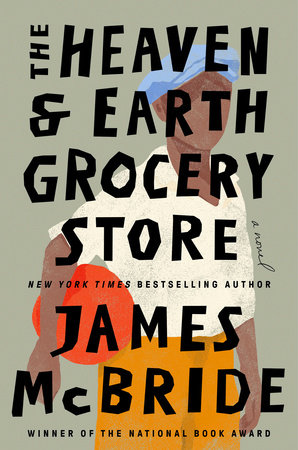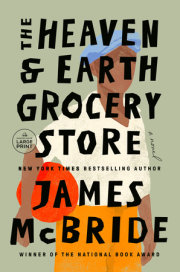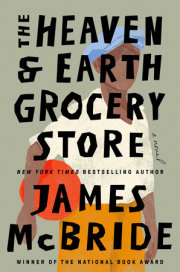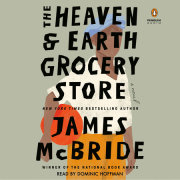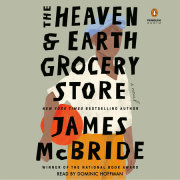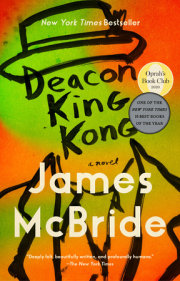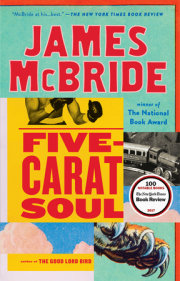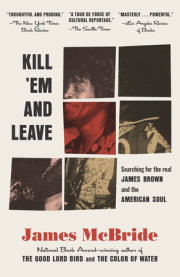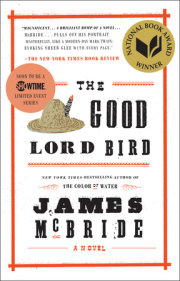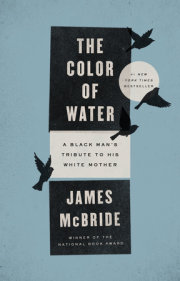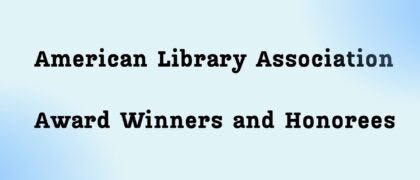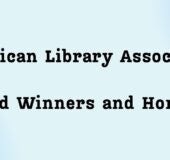Nate Timblin was a man who, on paper, had very little. Like most Negroes in America, he lived in a nation with statutes and decrees that consigned him as an equal but not equal, his life bound by a set of rules and regulations in matters of equality that largely did not apply to him. He had no children, no car, no insurance policy, no bank account, no business, no set of keys to anything he owned, and no land. He was a man without a country living in a world of ghosts, for having no country meant no involvement and not caring for a thing beyond your own heart and head. The only country Nate knew or cared about, besides Addie, was the thin, deaf twelve-year-old boy who at the moment either was riding a freight train to Philadelphia or was standing ten feet from him and tossing small boulders into the Manatawny Creek. Which one was it?
“Dodo.”
It was surprise that caused him to utter the boy’s name, for he knew he might as well have been talking to himself. The boy couldn’t hear. Even so, the child was busy, sorting through stones at the riverbank, stacking large ones to make some kind of embankment along the creek’s edge, tossing smaller rocks into the water.
Nate knelt, relit the lamp, and held it high, waving it to get the deaf boy’s attention. With Dodo, everything was sight, feel, and vibration, not sound. The light cast an eerie glow on the water. Yet the boy was so involved in what he was doing that Nate had to wave the light several times.
The boy saw the lamp’s reflection in the water first, then dropped the rock he was holding, turned to the source of the light, and stood up straight, a thin arm raised in a shy hello as Nate approached.
Nate pointed at the rock formation. “What you doing, boy?”
Dodo smiled. He motioned Nate closer. He drew a wide circle with his arms, demonstrating a circle of rocks, then aped holding a cradle like he was rocking a baby.
“Say what now?”
The boy rubbed his hands together, as if creating magic or heat, then cupped his hands to his ear, as if he could hear.
“You got a hole in your head, son? Was you riding the train this morning? Was that you?” Nate gently touched one of the boy’s hands. They were freezing. He placed the lamp high, holding it so that his lips could be seen. The boy had not been born deaf. An accident killed his hearing. A stove blew up in his mother’s kitchen when he was nine. Killed his eyes and ears. His eyes came back. His ears did not. But he could read lips. Nate held the lamp next to his face so Dodo could see them.
“What you doing?”
The boy’s eyes danced away, then he said, “Making a garden.”
“For what?”
“To grow sunflowers.”
“CJ and them said you was on a train this morning.”
Dodo looked away. It was his way of ignoring conversation.
Nate calmly reached out and slowly turned the boy’s head so that the boy faced him. “Was you on that train or not?”
Dodo nodded.
“All right then.” Nate looked about, then pointed to a dogwood tree nearby. “Tear me off a branch from that tree yonder and make a switch. Then come on in the house. Your auntie’ll even you out.”
He reached for the boy’s hand, but instead of reaching out, the boy drew from his pocket a folded and wrinkled white piece of paper.
Nate gently removed it from the boy’s hand and, unfolding it, held it up to the lantern. He read the words slowly, running his eyes across the paper. When he was done, his gaze settled on the boy. “I can’t read fancy words, Dodo. But Reverend Spriggs inside reads good. We’ll ask him to figure them out.”
Dodo spoke. “I know what it says,” he said.
“What’s that?”
“My ma’s dead.”
Nate was silent a moment. He peered up toward the shed and the house, thinking to himself of all that was wrong in the world.
“You don’t need no paper to tell you your ma’s got wings, son.”
“Then why I got to leave?”
“Who says you leaving?”
“This paper says it.”
Nate gently took the paper from the boy, crumpled it, and tossed it in the creek. The tall man leaned down and tapped the boy’s chest gently. “God opened up your heart when He closed your ears, boy. You got a whole country in there. Don’t fret about no paper. That paper don’t mean nothing.”
Copyright © 2023 by James McBride. All rights reserved. No part of this excerpt may be reproduced or reprinted without permission in writing from the publisher.

